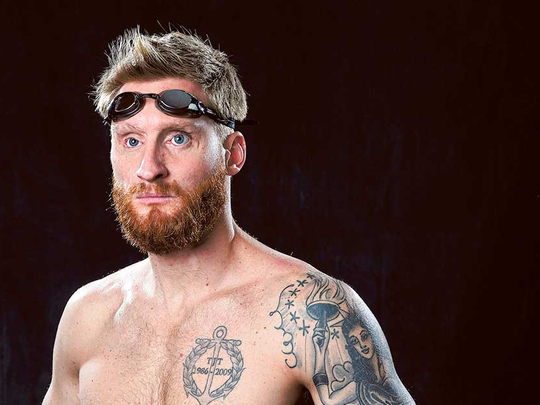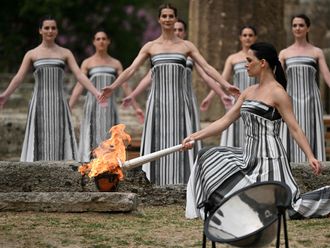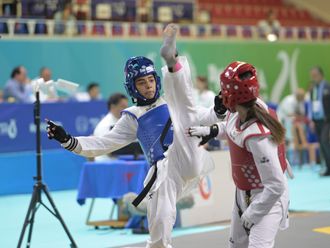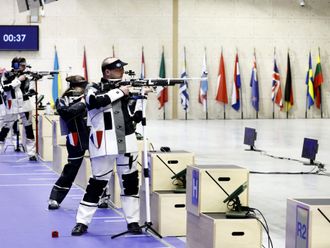
Los Angeles: A competitive swimmer since childhood, Brad Snyder lost his eyesight in 2011 while working in Afghanistan for a US Navy bomb-disposal squad when he stepped on an improvised device.
Neither his legs nor arms were affected by the blast but shrapnel tore into his face, leading to the removal of his eyes and their replacement with prosthetics.
A gruelling recovery followed, with three weeks in intensive care followed by five weeks in Florida.
Snyder returned to swimming in February 2012. “Swimming is something that I was pretty good at before, and I thought it might be something that’s fun for me to do,” he said in a 2012 interview.
“I hop in the pool, and everything just flows. Everything’s just really natural. Every once in awhile I crash into the lane line, but other than that it feels really good to do well.”
Exactly a year after the blast that claimed his eyesight, the fiercely competitive Snyder was competing in the 2012 Paralympic Games as a blind swimmer, winning gold in the 100m and 400m freestyle and a silver in the 50m freestyle. Snyder says he hopes his example can inspire others.
“I know there are a lot of guys out there, guys and girls, who are struggling with a tough hand and hopefully my success can reach out to those people and say, ‘Hey, there is a way forward; there is something you can go out and do that will give you that relevance and success again,’” he says.
Snyder has also worked to raise awareness about blindness, teaming with the Swim For Sight organisation to raise money to tackle blindness and perform cataract operations in the developing world.
“The travesty about that number (of people who are blind) really is that most of it is preventable,” Snyder said earlier this year.
“Being someone who’s had to negotiate the challenges of being blind for the past four-and-a-half years or so, if there’s a way to prevent that, I want to support that as much as possible.”











